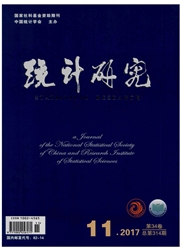

 中文摘要:
中文摘要:
在经济持续发展的大背景下,居民幸福感却表现出了非同步性的变化轨迹,大量文献对其可能的影响因素进行了探究。但是,幸福感逆向效应的研究常常被忽视。基于2010年中国综合社会调查数据,使用城市年意外日照时长作为工具变量,本文评估了幸福感对居民环境行为的影响,并初步检验了可能的影响机制。结果显示,主观幸福感对居民环境行为具有显著的影响作用,幸福感的提升能够增加居民参与环境行为的概率。由此带来的环境关心水平的提高被看作是幸福感影响居民环境行为的主要机制。此外,收入水平的增加还能促进居民私人领域和公共领域部分环境行为的发生。因此,以改善民生和提高居民幸福感为目的的经济转型,可以看作是解决经济发展与环境保护之间矛盾的重要途径。
 英文摘要:
英文摘要:
Happiness, as being of the ultimate goal of economic development, a large body of literature has documented on the factors contributing to the people' s life happiness. However, their related reverse effects has been much overlooked. To fill out this gap, this paper attempts to assess the effects of the residents' subjective happiness on their environmental behaviors by introducing the unexpected part of sunshine as an instrument variable, and at the same time carries out a preliminary investigation for the influential mechanism based on the China General Social Survey in 2010. The results show that the residents' subjective happiness displays a significant effect on their environmental behaviors in such a way that the enhancement of the residents' happiness can increase the likelihood for them to participate in the environmental activities. As a result, the sensitivity level of the residents' environmental concerns can be viewed as a primary mechanism for residents' happiness to contribute to their environment behaviors. In addition, the level of income increase enables to enhance the occurrences for residents to participate in both private and public environment behaviors. Therefore, the economic transformation aimed for improving people's livelihood and subjective happiness can be regarded as an important approach for solving the conflicts between economic development and environment protection.
 同期刊论文项目
同期刊论文项目
 同项目期刊论文
同项目期刊论文
 期刊信息
期刊信息
